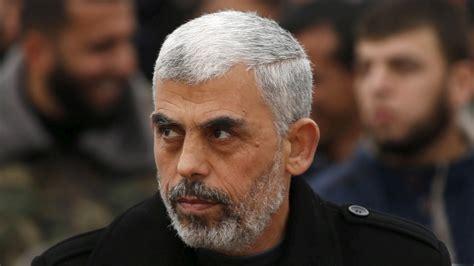
Hamas chief silent on Israel’s offer of escape in exchange for hostages
Gal Hirsch, Israel’s coordinator for hostages and the missing, has broadened a cease-fire offer from the Israeli government to Hamas leader Yahyah Sinwar.
“I think we will be able to provide safe passage to him, his family, whoever he wants to take with him. If [he wants] to take ten, take ten. Thousands! I don’t care,” Hirsch told CBS News.
In return, he said Hamas would have to relinquish control of the Gaza Strip and allow the return of the remaining 101 hostages.
“It would be the end of the war, as [the hostages] will be recovered,” Hirsch said.
Of the remaining 101 hostages currently held by Hamas, Israeli intelligence believes 64 are still alive. Israel insists both the living and the dead must be returned.
Sinwar has not replied to Hirsch’s proposal since the Israeli negotiator first floated a more limited version of it last week.
The Hamas leader has been in hiding, presumed to be somewhere in the labyrinth of tunnels under Gaza, since the group launched its Oct. 7 terrorist attack on Israel, killing some 1,200 people, taking about 250 others hostage, and sparking the ongoing war in Gaza.
According to Israeli officials, Sinwar was last sighted in a video they say came from a Hamas security camera, recorded just days after the Oct. 7 massacre. The grainy black and white pictures only show him from behind, following his wife and children into a tunnel.
Sinwar was named the overall head of Hamas on Aug. 6, about a week after Israel assassinated the group’s long-time political leader Ismail Haniyeh in Iran’s capital, Tehran.
Sinwar did issue a public message this week, thanking his Houthi allies in Yemen after one of their missiles reached Israel on Sunday. There was no suggestion in his message that he was open to accepting an Israeli offer of safe passage out of Gaza. On the contrary, he signalled that with the help of the Houthis and Hamas’ powerful Hezbollah allies in Lebanon, his group was ready to hold out for eventual victory over Israel.
“We have prepared ourselves for a prolonged war of attrition that will break the enemy’s political will,” he said.
Hirsch also signalled in his interview with CBS News that there could be some wiggle room in one of Israel’s key conditions for a cease-fire agreement with Hamas.
Two weeks ago, Prime Minister Benjamin Netanyahu was accused by Hamas of suddenly introducing a new term in the negotiations. He was said to have moved a goal post in the drawn-out dialogue, insisting that after the war, Israeli troops would have to remain in the Philadelphi Corridor, the area along Gaza’s southern border with Egypt, to make sure Hamas could not smuggle weapons into the Palestinian Territory that way.
For Hamas, any enduring Israeli military presence in Gaza has always been a non-starter in the negotiations.
Hirsch has now hinted that there could be room for a compromise.
“I’m dealing with the hostages and the missing,” he said. “The Philadelphi road is a very important asset for negotiations.”
Various senior Israeli military figures believe surveillance of the alleged smuggling route could be carried out electronically, with help from international partners, but without Israeli boots on the ground.
Asked whether Israel could rely on underground sensors instead of troops to detect smuggling, Hirsch said the details of the IDF deployment – which troops are stationed where – “is part of the negotiation.”
“The Philadelphi road, the prisoners in Israeli prisons, humanitarian support – these are all assets we can negotiate with to bring our hostages back home,” he said.
Source » aol.com





